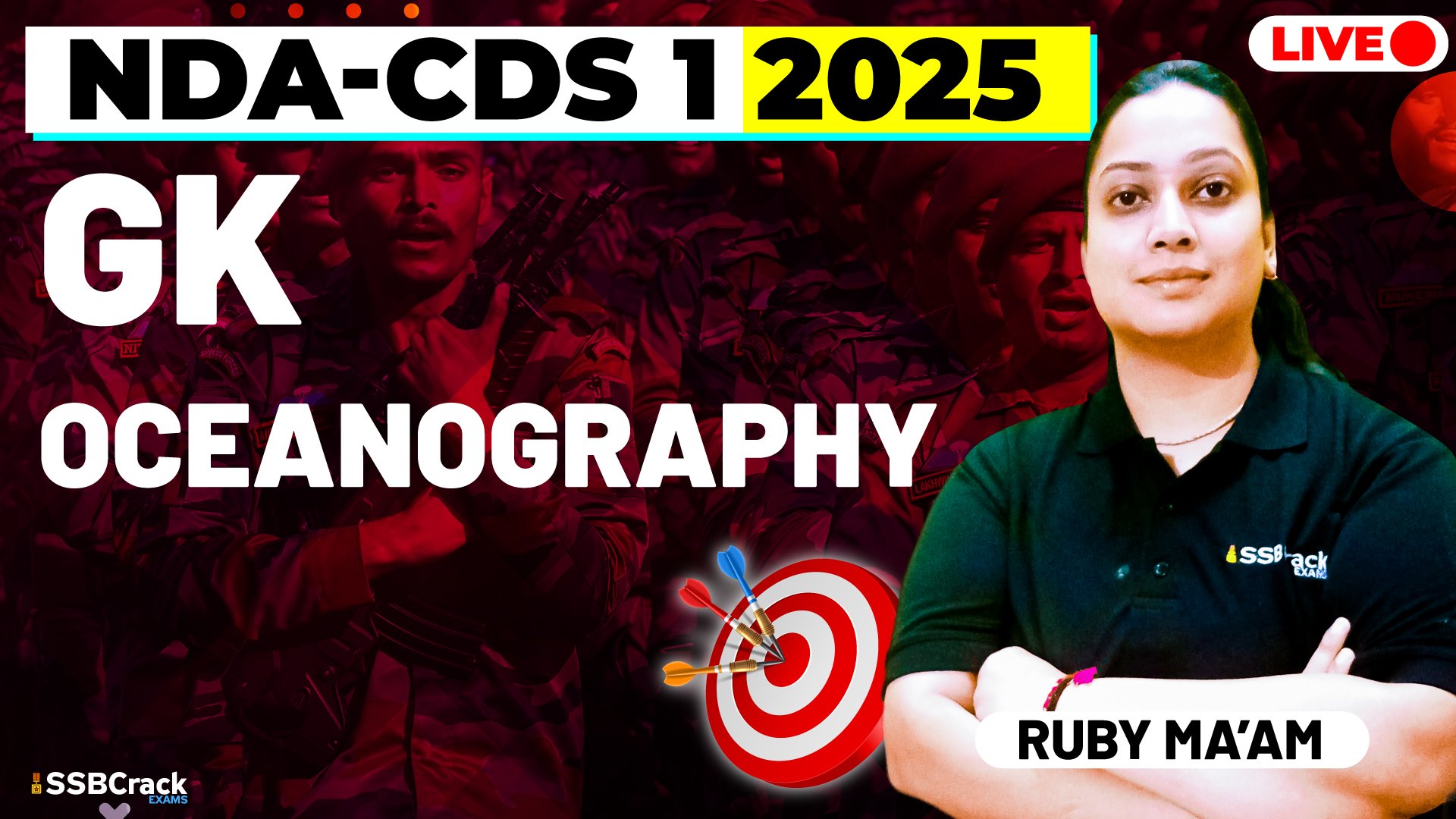For aspirants preparing for the National Defence Academy (NDA) and Combined Defence Services (CDS) exams, understanding diverse subjects is crucial. One such subject that plays a significant role, especially in the general knowledge and geography sections, is Oceanography. While it might seem like a specialized scientific domain, oceanography has broader applications and significance in defense strategy and maritime security. Here’s why oceanography is important and how it can help NDA and CDS aspirants in their preparation.
1. Oceanography in the Exam Syllabus
Oceanography is often a part of the Geography section in both NDA and CDS exams. This subject is closely related to physical geography and covers the study of oceans, seas, and marine ecosystems. Understanding the distribution of oceans, their physical and chemical properties, currents, tides, and marine resources are essential for answering questions related to the Earth’s natural environment. Concepts of oceanography are tested through questions about ocean currents, coral reefs, marine biodiversity, and sea-floor topography.
2. Relevance to Naval and Defense Strategy
For those aspiring to join the Indian Navy or Air Force, oceanography is particularly important. Oceans serve as strategic pathways for defense operations, trade routes, and economic zones. Understanding oceanography is vital for naval strategy, maritime security, and resource management. The knowledge of ocean currents, underwater terrain, and coastal geography can influence naval maneuvers, search and rescue operations, and national defense planning.
For example:
- Ocean Currents and Naval Operations: Ocean currents impact the movement of ships, submarines, and other maritime vessels. A defense strategist must understand how currents and tides can affect navigation and fuel efficiency.
- Marine Environment and Resources: Understanding the distribution of marine resources like oil, natural gas, and fish stocks is crucial for defending and managing a nation’s Exclusive Economic Zone (EEZ).
3. Climate and Environmental Significance
Oceanography also plays a key role in understanding climate change, a topic frequently addressed in both exams. Oceans absorb a significant amount of the Earth’s heat and are critical regulators of global temperatures. Knowing how oceans influence weather patterns, the water cycle, and the monsoon system (especially for India) can help candidates answer environment-related questions.
4. Maritime Security
With the rise in maritime piracy, illegal fishing, and territorial disputes, maritime security has become a pressing global issue. Aspirants aiming for a career in the defense forces need to understand how the geographical knowledge of oceans, coastal areas, and undersea features is vital for safeguarding national interests and ensuring the security of maritime boundaries.
5. Preparation Tips for NDA and CDS Aspirants
To prepare for questions on oceanography, here are some key areas to focus on:
- Ocean Currents and Major Water Bodies: Study the Atlantic, Pacific, Indian, Arctic, and Southern Oceans. Be aware of important currents like the Gulf Stream, Kuroshio Current, and the Indian Ocean’s monsoon currents.
- Coral Reefs and Marine Ecosystems: Understand the importance of coral reefs, their locations, and how they support marine biodiversity. Study the different zones of the ocean like the continental shelf, abyssal plains, and deep-sea trenches.
- Tides and Waves: Grasp the concepts of spring and neap tides, how they are caused, and their significance in coastal navigation.
- Marine Resources: Learn about resources found in oceans, such as oil, gas, minerals, and their economic importance for India.
6. Resources for Learning Oceanography
To effectively prepare for the NDA and CDS exams, aspirants should refer to NCERT Geography textbooks (Class 11 and 12), which cover oceanography comprehensively. Apart from textbooks, other resources like Atlases, competitive exam guides, and documentaries on oceans can provide additional insights. Regularly reading newspapers and defense magazines will also keep candidates updated on current affairs, especially those related to maritime disputes, oceanic explorations, and climate change impacts.
Conclusion
Oceanography is not just a scientific subject but a strategic area of study for defense aspirants. For NDA and CDS aspirants, knowledge of oceanography is crucial for tackling geography-related questions in the exam and for their future roles in India’s defense forces, especially the Navy and Air Force. By gaining a solid understanding of oceanographic principles, candidates can significantly improve their chances of success in these competitive exams and be better prepared for a career in defending the nation’s maritime interests.







